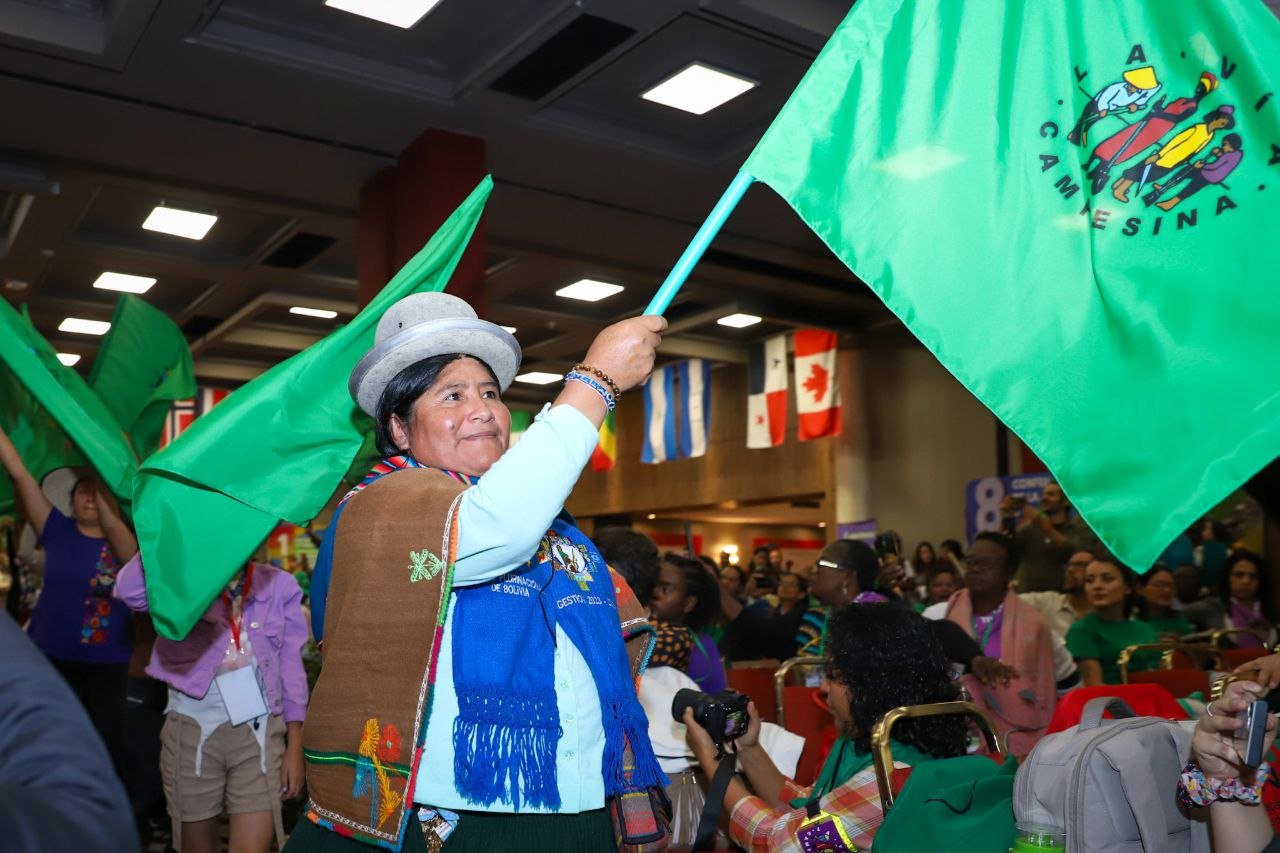(Bogota, December 4, 2023) The International Peasants movement, La Via Campesina, opened its 8th International Conference on the 3rd of December in Bogotá, Colombia. Comprised of 182 farmers’ organizations from 81 countries, La Via Campesina holds its International Conference every four years, but the 8th was held six years after the 7th Conference held in Bilbao, Spain in 2017 due to the impact of the COVID-19 pandemic. Prior to the opening of the plenary session, the Youth Assembly was held on the first day, and then the Women’s, Men Against Patriarchy, and Gender Diversity assemblies were held on the second day. The 8th International Conference is scheduled to run for eight days from December, 1 to 8.
From South Korea, Kim Jung-yeol, ICC member for La Via Campesina Southeast and East Asia, Yoon Geum-soon, former ICC member for Southeast and East Asia, Kwon Oh-hyun, Vice Chair of the Korean Peasants League (KPL), Yang Ok-hee, President of the Korean Women Peasants Association (KWPA), Lee Jun-kyu, secretary general of the Goesan KPL, and Kim Ji-young, secretary general of the Jeju Daejeong-eup KWPA are participating as delegates.
The 8th International Conference will mark the 30th anniversary of La Via Campesina, which was founded in 1993, and will focus on reflecting on its progress, sharing the experiences of peasants around the world in the face of climate change, war, and other threats, and outlining the activities of La Via Campesina’s affiliated farmer organizations around the world for the next four years. In particular, the Conference will consolidate the meaning of the adoption of the United Nations (UN) Declaration on the Rights of Peasants on December 17th, 2018, and will focus more on the need to strengthen international solidarity for the realization of peasants’ rights and the achievement of food sovereignty.
The opening ceremony, which took place on the 3rd of December, was led by the Latin American Coordination of Rural Organizations Council (CLOC), which played a key role in the preparation of the Conference. On that day, CLOC held a symbolic ceremony emphasizing solidarity, struggle, and unity, holding up signs on communication, agroecology, and land reform, and eliciting a response from the anticolonialist participants.
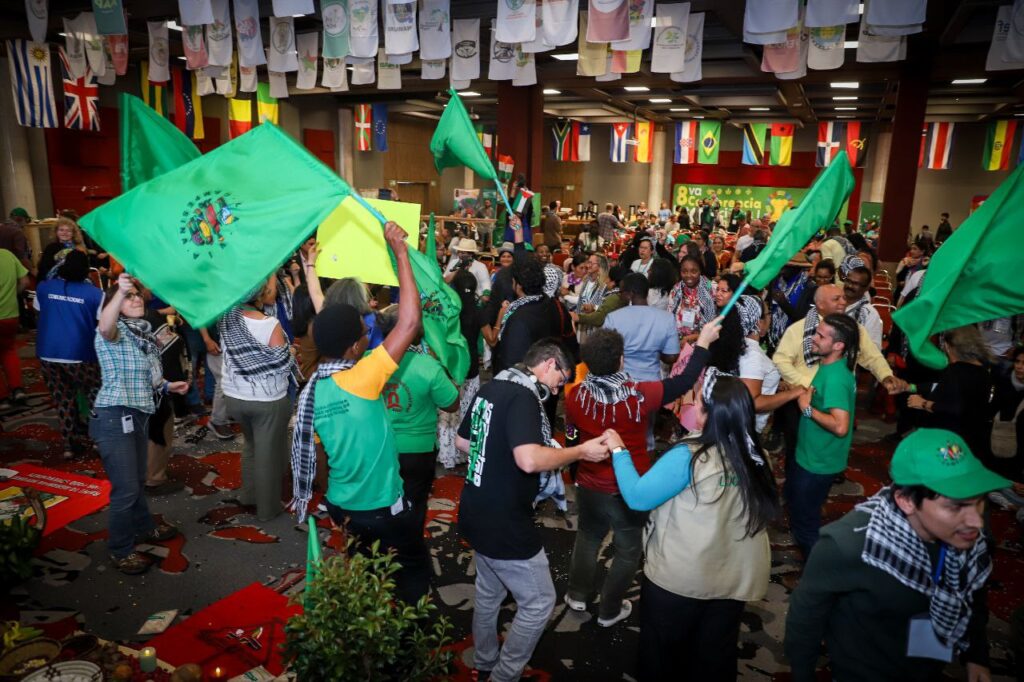
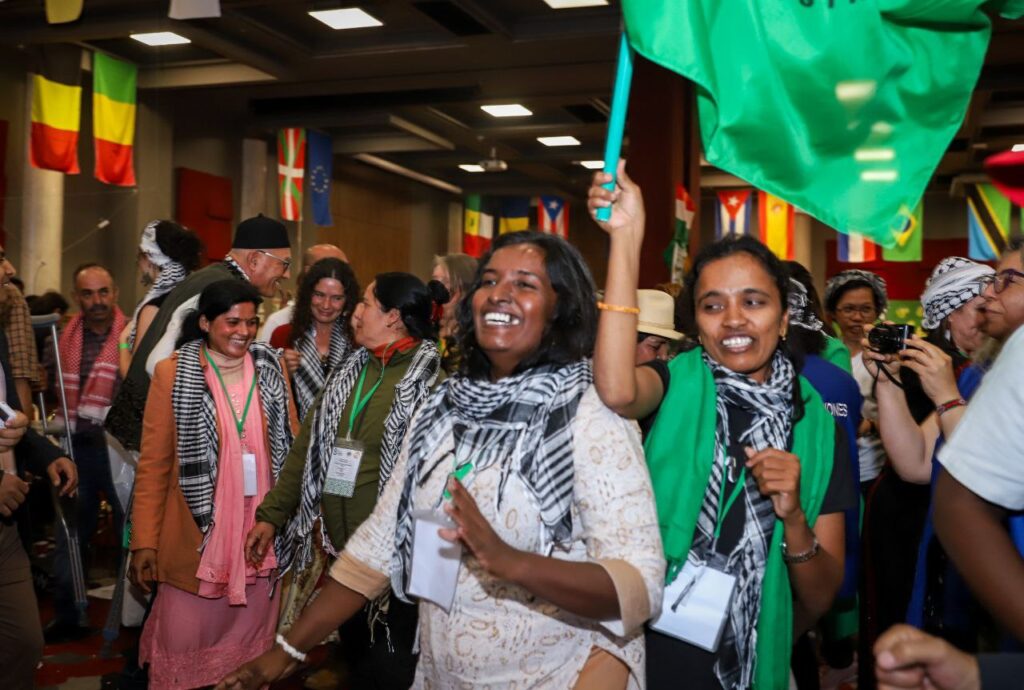
After the CLOC’s symbolic ceremony, the new members of the La Via Campesina were introduced. The farmers’ organizations that have gained full membership since the 7th General Assembly are the Australian Food Sovereignty Alliance (AFSA), the Belgian and Irish farmers’ organizations, and the Croatian Family Farmers’ Union (ACFF), and they strengthened their will to struggle with the enthusiastic support of the representatives and members of La Via Campesina. In addition, the Mauritanian Small Farmers’ Union and the Palestinian Farmers’ Union were added as new organizations to La Via Campesina, expanding the organization to 10 regions, including Central America, South America, North America, the Caribbean, Southeast Africa, West and Central Africa, South Asia, Southeast and East Asia, and Europe, in addition to the nine regions of the Middle East and North Africa.
Morgan Ody, La Via Campesina’s general coordinator, said, “I want to talk about La Via’s first woman leader, Elizabeth, who said, ‘La Via Campesina can move slowly. This is natural. It’s more important that we all go together, even if it’s slow’. With this spirit, we must continue to struggle. Let’s globalize the hope and globalize the struggle.”
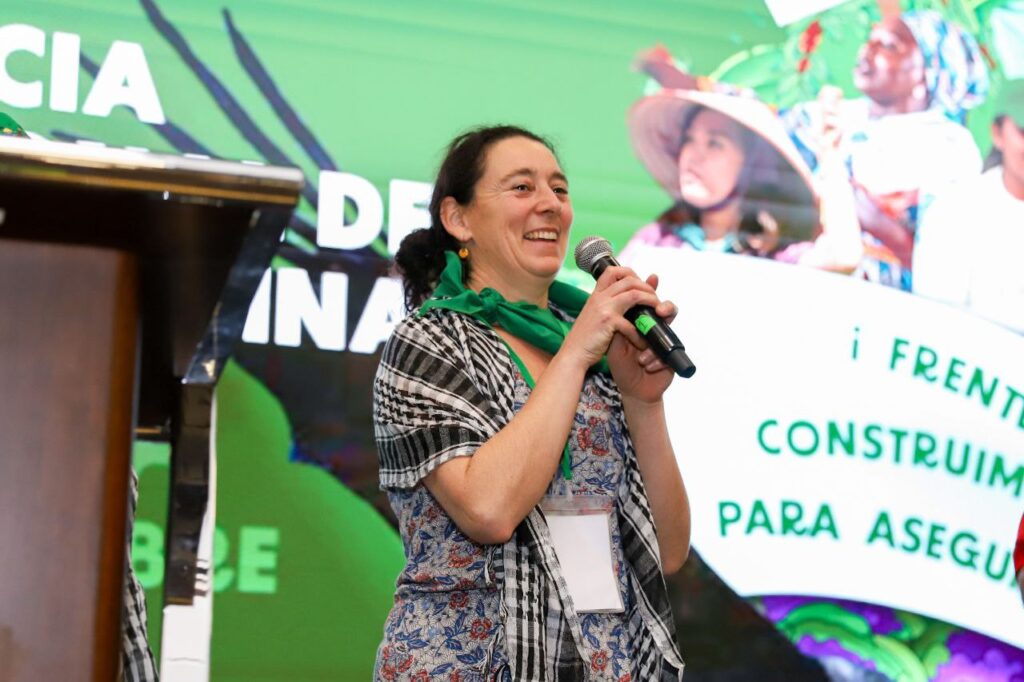
Jhénifer Mojica, a representative of the Ministry of Agriculture, then delivered a welcome on behalf of the Colombian government, which hosted the Conference. “Seventy per cent of the crops produced in Colombia are in the hands of a small number of women indigenous farmers. One out of every three family members produces fruit and other agricultural products and fish, and yet one of those families still goes hungry. I know that La Via Campesina is working to save the world and build alternatives by protecting nature, protecting water, protecting ecological farming, protecting family farming, protecting seeds, and ensuring access for marginalized people so that farmers can own their land. Colombia, too, faces challenges and opposition to change, and with your solidarity and participation, we can create a more inclusive agricultural system.”
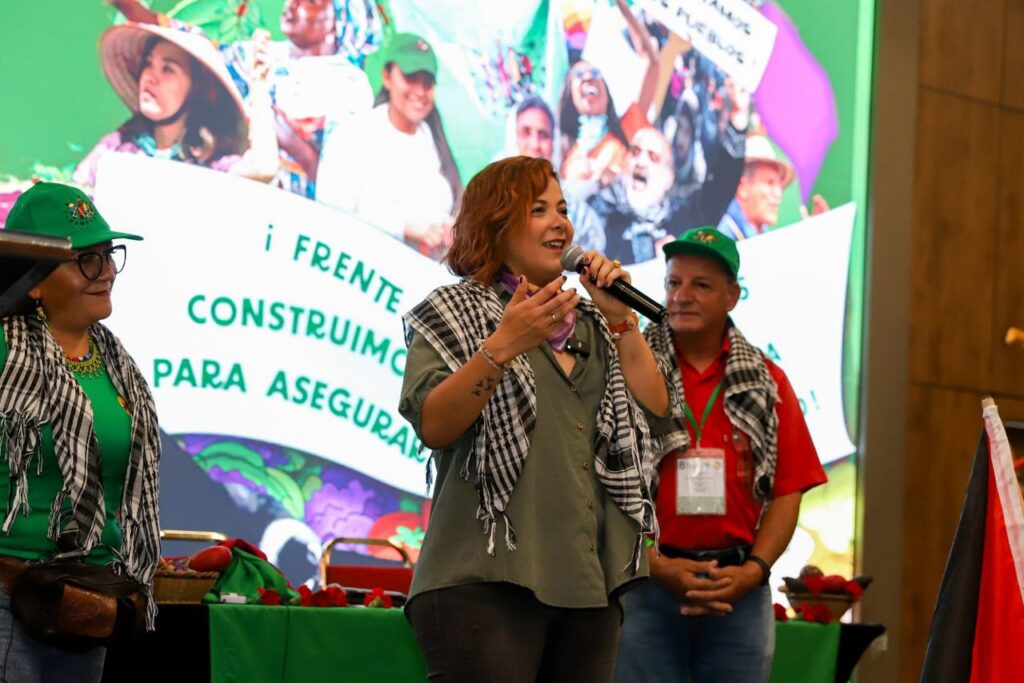
The plenary session then moved on to discuss the past 30 years of La Via Campesina and the challenges ahead. In a video, La Via Campesina’s former Secretary General Henry Saragih said, “I believe that agriculture should be excluded from the World Trade Organization (WTO). We must continue to call for the dismantling of the WTO and stop moves to privatize food production. The world’s famines can be solved with food sovereignty and we are at the center of the international food sovereignty movement. While the movement continues to be demeaned and thwarted by transnational corporations, agrarian reform is happening alongside La via Campesina’s work. New challenges are emerging, such as the oppression of Palestinians, but we must continue to fight in solidarity.”
Nettie Wiebe, former ICC member, added “The first General Assembly was organized in 1996, when La Via Campesina organized a delegation. There was not enough food then, and there is not enough food now in 2023. From the beginning, La Via Campesina was built on equality, respect, and appreciation of diversity, and we are still celebrating diversity and dreaming of more values within it. There is a saying: ‘To go fast, go alone; to go far, go together’. We have to go further, and the solidarity of our organizations is essential for us to go further.”
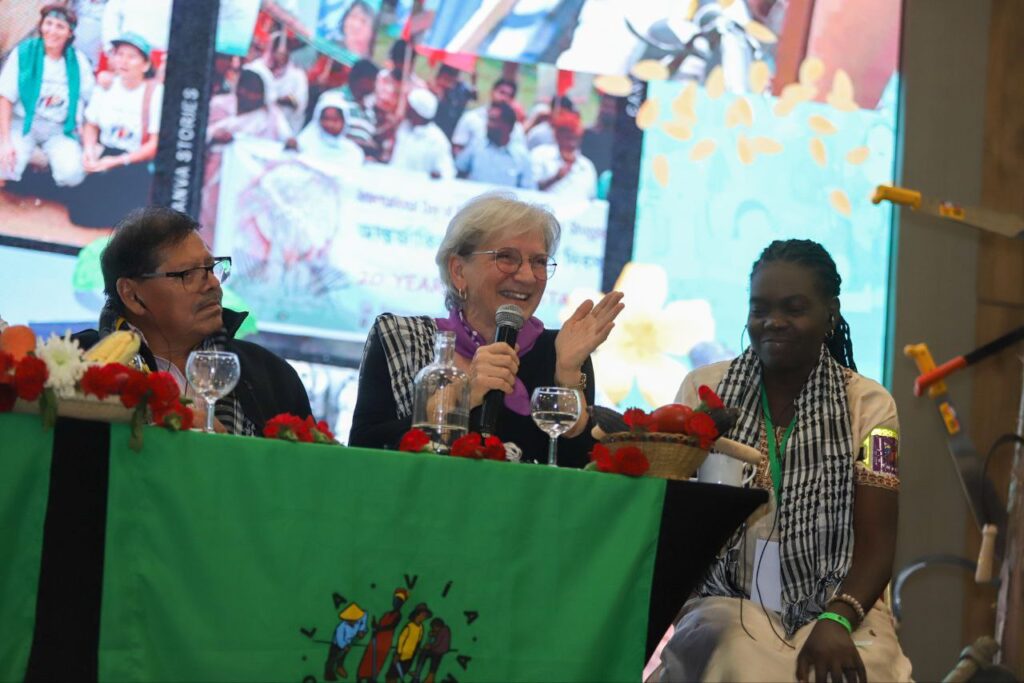
The plenary session concluded with a roundtable on the international situation, with representatives from each continent. Under the slogan “Faced with global crises, we build food sovereignty to ensure a future for humanity,” La Via Campesina 8th International Conference will include panel discussions and roundtables on the food sovereignty movement, reports and presentations on activities since the 7th Conference, discussions on thematic areas (agroecology, land and agrarian reform, climate crisis, rights of peasants and rural migrant workers, public policies, the struggle against violence and discrimination in rural areas), and the preparation and presentation of a final declaration and solidarity statement.

